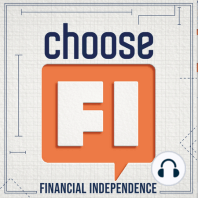24 min listen
260 | What's your Survival Number? | Jully-Alma Taveras
FromChooseFI
ratings:
Length:
44 minutes
Released:
Oct 12, 2020
Format:
Podcast episode
Description
Immigrating to the United States as a child, by early adulthood, Jully found herself caught up in our consumer culture and had acquired five figures worth of debt. After working to dig her way out and starting on her path to finical independence, she's become an advocate. Drawing from her experience, she now help Latinas become financial powerful through investing. At the age of four, Jully moved from the Dominican Republic to New York. Her extended family all began making the move as well, but as many immigrants to, they continued to send money and invest in their socioeconomic systems back home. For immigrants, investing in their home countries has multiple purposes. There is often an expectation that money will be sent home to support the family. Jully's father supported her grandmother by building her a new home and making sure she was taken care of. However, when the grandmother also immigrated to the US, the house back in the Dominican Republic was rented out and became the first property in a real estate portfolio. Immigrants have struggles that a typical American doesn't go through. Investing in real estate in their home countries helps connect them to their communities. However, Jully says immigrants tend to invest more in real estate than in the stock market. She shares the message that it is important to diversify their investments. When she started working for a non-profit at the age of 19, Jully began investing a 403b for the free money. That decision was criticized by her mother who felt retirement was a long way off and that it wasn't necessary because Americans receive Social Security. When her family first arrived in the US, they didn't speak the language. It was a lesson in how to figure things out in the moment and just survive. It took a couple of years before her father began thinking in an entrepreneurial way and on a bigger scale. He went from driving a taxi to starting a bodega business. The bodega enabled Jully to see both her parents work in that environment, build their business, send money home, and contribute to the community. The money lessons she learned from her parents were to be generous and give. But the reality was her father worked a lot to build their life and they didn't see him much. Had he invested more, perhaps they would have been able to see him more. Jully went to school for fashion merchandising and economics. When she got her first job, lifestyle inflation kicked in. Working in the fashion industry required looking good with the latest trends. After accumulating the debt, Jully realized that she was channeling her emotions with her shopping. She was both celebrating and consoling herself with shopping to the point where it became unhealthy. Thankfully she had continued to invest even when the debt was bringing her down. It wasn't until her father became ill that she realized the safety net she had in her parents won't always be there. At that point, she began working to pay off all her debt. Once debt-free, Jully increased her 401K investments to around 20%. Jully notes that when first entering the workforce, you feel that nothing can go wrong, or if it does, you'll just figure it out. But you have to start with the basics. You have to start with the foundation of an emergency fund. Credit card debt is subject to incredibly high-interest rates of 12-30%. With five figures of debt, the compound interest is working against you and it's hard to fig yourself out from under it. To get out from under her credit card debt, Jully had to make significant payments toward it. The key was knowing her survival number. She created a simple chart with eight categories of things you need to come up with a survival number. The categories include housing, food, transportation, and even entertainment. Jully's survival number is $581. The items in her $581 figure are the absolute minimum things she needs to survive and keep her life sane. The reason she can keep her number so low is by house hacking
Released:
Oct 12, 2020
Format:
Podcast episode
Titles in the series (100)
006 | The Power of Partnerships | ChooseFI Origin Story: In Today’s Podcast we cover: The Power of Partnerships How Brad and Jonathan met Our decision to partner up on Choose FI The importance of taking action The value of personal relationships in an online world by ChooseFI
